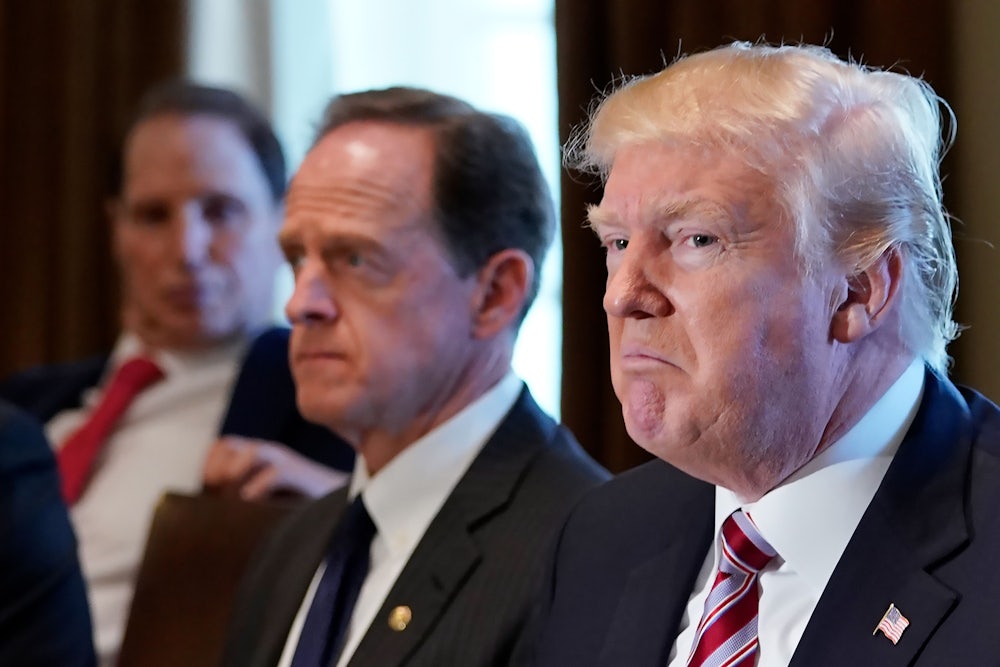Michael Cohen, a longtime lawyer for President Donald Trump, admitted Tuesday to The New York Times that he was behind the $130,000 payout to former porn star Stormy Daniels during the final weeks of the 2016 campaign. The source of the money had been a lingering mystery ever since The Wall Street Journal reported a month ago that Cohen had “arranged” the payout in exchange for Daniels’s silence about her purported affair with Trump.
In a statement to the Times, Cohen strongly denied that the money came from the Trump Organization or the Trump campaign, while strongly hinting that he paid Daniels out of his own pocket: “Neither the Trump Organization nor the Trump campaign was a party to the transaction with Ms. Clifford, and neither reimbursed me for the payment, either directly or indirectly,” Cohen said. “The payment to Ms. Clifford was lawful, and was not a campaign contribution or a campaign expenditure by anyone.” Cohen declined to tell the Times “whether Mr. Trump had been aware that Mr. Cohen made the payment, why he made the payment or whether he had made similar payments to other people over the years.”
Responding to a complaint that alleged Trump used campaign funds to pay Daniels, Cohen was adamant in his denial. “The complaint alleges that I somehow violated campaign finance laws by facilitating an excess, in-kind contribution,” Mr. Cohen said in his statement. “The allegations in the complaint are factually unsupported and without legal merit, and my counsel has submitted a response to the F.E.C.” This, as others have pointed out, is not quite an admission that the money came from Cohen personally. There’s quite a bit of wiggle room in the word “facilitate”—meaning that the money could have come from Trump or another wealthy financial backer.
In his statement to the Times, Cohen is trying to make it clear that he—and Trump, by extension—did not violate campaign finance laws. But his highly ambiguous statement to the Times raises more questions than it answers. Namely, even if the money didn’t come from the Trump campaign directly, Cohen’s actions seem to have been undertaken for the purpose of skirting campaign finance law. In 2011, John Edwards was indicted for soliciting money for the purpose of hiding the identity of his mistress from voters. The situation with Daniels seems similar. Even if campaign money wasn’t directly used, Cohen and Trump could still be in trouble.
